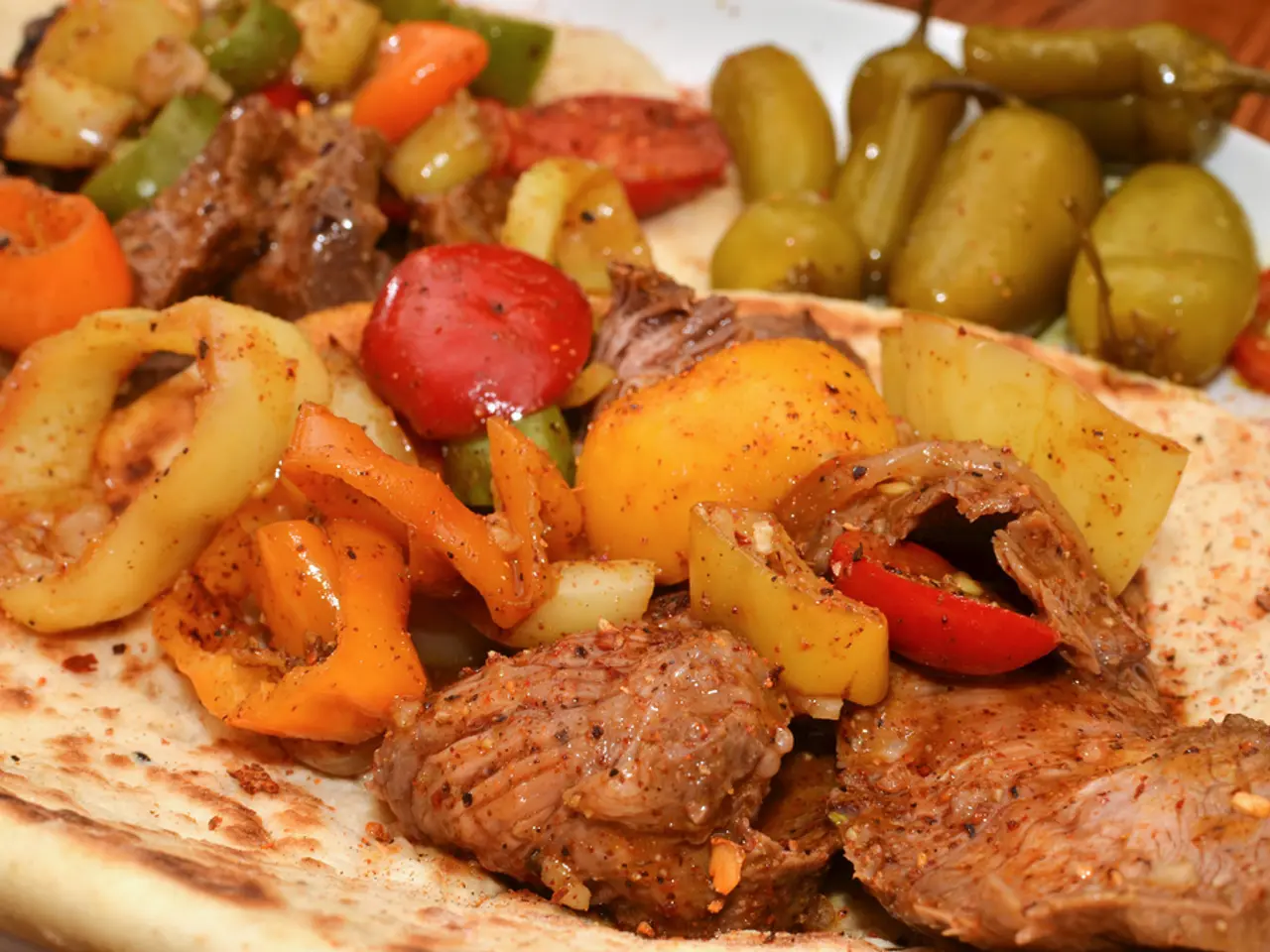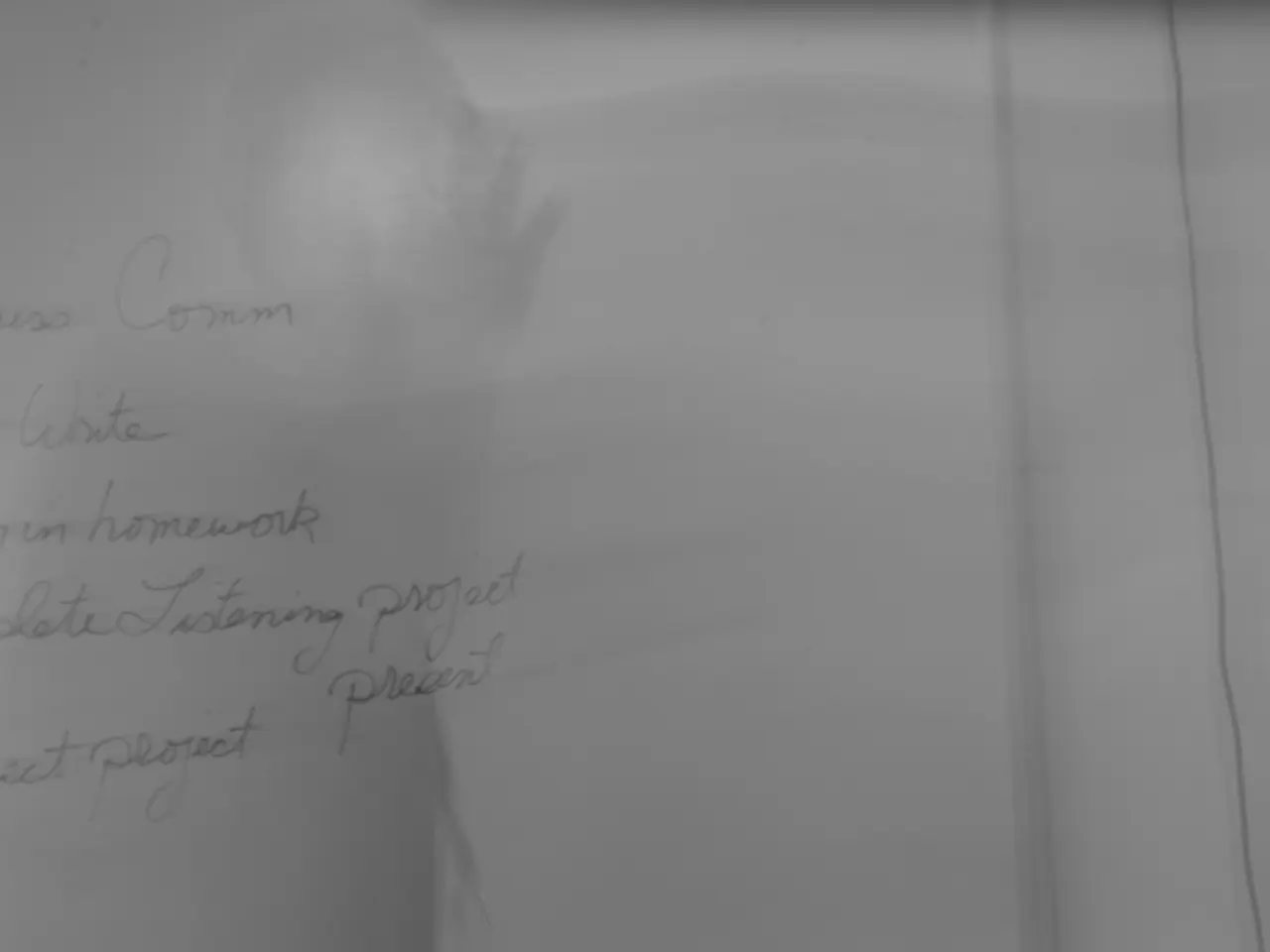Argentina reduces tariffs on significant agrarian exports
Argentina Permanently Slashes Export Duties on Key Agricultural Products
In a significant move to boost the agricultural sector, Argentine President Javier Milei has announced permanent reductions in duties on key exports such as beef, poultry, soybeans, and their by-products, corn, sorghum, and sunflower seeds.
The cuts, which took effect on July 26, reduce export taxes from 6.75% to 5% on poultry and beef, from 12% to 9.5% on corn and sorghum, from 7.5% to 5.5% on sunflower seeds, from 33% to 26% on soybeans, and from 31% to 24.5% on soy by-products [1][2][3][4].
This policy shift follows earlier increases that were recently reversed and marks a significant step towards supporting Argentina's most productive economic sector, which has been heavily burdened by these taxes for two decades [1][2]. The President has affirmed that these cuts are permanent and will not be reversed while he remains in office [1][2].
The agricultural sector has welcomed these changes, as export duties have historically been used for revenue collection and as a tool to control local food prices, often hampering exporters [1]. The expectation is that lowering these taxes will boost agricultural output and exports by improving producer margins [3].
However, the government may compensate for the fiscal revenue loss by increasing other taxes, a concern raised by Argentine economists [3]. The immediate fiscal and economic impact remains to be fully assessed due to the policy’s recent implementation, but it represents a long-sought reduction by the farming community and a step toward gradually eliminating export taxes in Argentina [3].
It's important to note that the agricultural sector represents around 10 percent of Argentina's GDP and accounts for 60 percent of the country's exports in 2024 [5]. Argentina is one of the world's leading producers of soybeans and their derivatives, accounting for nearly 25 percent of the country's total exports in 2024 [6].
President Milei had promised these cuts during his presidential campaign, and the cuts on major agricultural exports, including sorghum, sunflower seeds, sunflower seed byproducts, soybean byproducts, wheat, and barley, are part of his long-promised reductions [7]. The tariff cuts on wheat and barley, previously temporarily reduced, will now be permanent [7].
In conclusion, the current status is a permanent reduction in agricultural export duties implemented since late July 2025, with intended impacts including agricultural growth stimulation and improved farm sector profitability, balanced against possible shifts in fiscal policy to offset lost revenue [1][2][3][4].
References: [1] "Argentina's Agriculture Minister Announces Permanent Tariff Cuts on Key Exports," Reuters, July 26, 2025. [2] "Milei's Agricultural Policy: A Shift Towards Export Duty Reductions," The Buenos Aires Times, July 27, 2025. [3] "Economic Impact of Milei's Agricultural Policy: Boost for Exports or Fiscal Concerns?," La Nacion, August 3, 2025. [4] "Argentina's Agricultural Export Duties: A Historical Overview," The Argentine Agricultural Review, August 5, 2025. [5] "Argentina's Agricultural Sector: An Overview of its Contribution to the Economy," The World Bank, 2024. [6] "Argentina's Agricultural Exports: A Leading Global Player," The Argentine Agricultural Chamber, 2024. [7] "Milei's Agricultural Policy: A Comprehensive Analysis," The Argentine Institute for Economic Policy, July 2025.
The permanent reduction in agricultural export duties, set since late July 2025, is anticipated to boost agricultural output and exports in Argentina [1][2][3][4]. Additionally, the President's affirmation that these cuts will not be reversed while he remains in office [1][2] signifies a significant step in politics and general-news regarding Argentina's agricultural sector.






